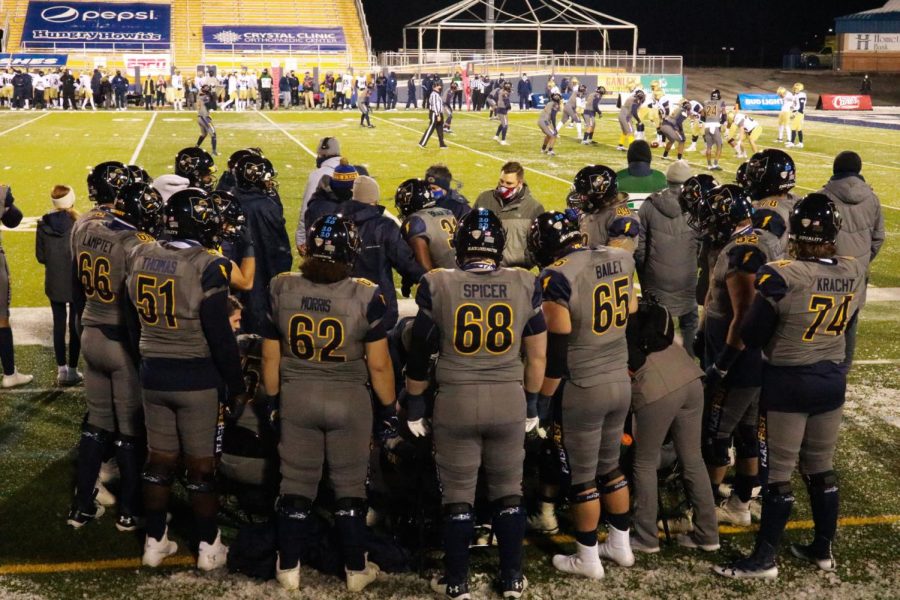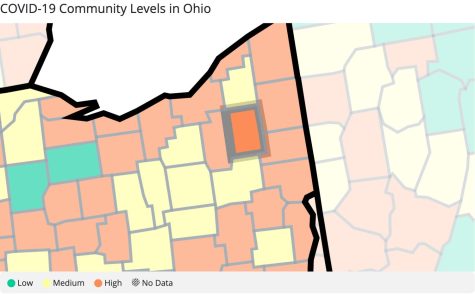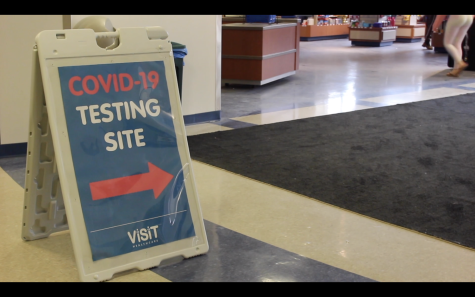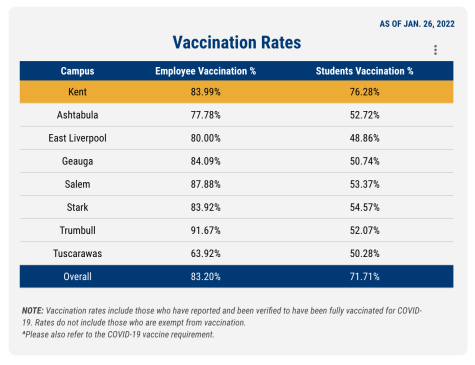Effects of COVID-19 on student-athletes
March 12, 2021
Long-term effects of COVID-19 are still vastly unknown, but many are concerned that these effects could be worse for athletes.
Jacob Barkley, a health sciences professor at Kent State University, says that the effects of COVID-19 vary from athlete to athlete, just like any other person. There are many different factors that can affect how severe someone’s symptoms may be.
“There are many cases where student-athletes get COVID-19 and are totally fine afterwards with no long-term effects, but there are also those cases where students are recovering for months,” Barkley said. “This is part of the reason why research on the long-term effects of COVID-19 is still very minimal right now.”
On the collegiate level, there are many procedures set in place to ensure student-athletes are protected from COVID-19. They are tested regularly and anyone with a positive test is removed from practices and games.
However, if a student does test positive for COVID-19 they have to follow “return-to-play” procedures to help train students back into playing to prevent possible long-term effects.
“Recently, experts have found that there is a chance an athlete could suffer from myocarditis after COVID-19, which causes swelling in the heart muscle,” Barkley said. “This makes rigorous activity extremely difficult, and could even be deadly. This is why the return-to-play procedures are so important.”
Before resuming activity, these students who had COVID-19 also must be cleared by a medical professional to ensure no additional testing is needed.
Student-athletes will then go through a week of seven supervised and graduated return-to-play stages so their trainers are able to monitor signs or symptoms and prevent any major complications.
Issac Vance, redshirt junior Kent State football player, tested positive for COVID-19 last semester.
“The worst part about COVID for me was the loss of taste and smell,” Vance said. “Overall my symptoms weren’t bad, but the first 24 hours were the worst. I felt like I just played back-to-back games, I was so weak and fatigued.”
Vance also knew when he tested positive that it would affect the entire football team, not just himself.
“I knew that I would most likely be OK because of my age and overall health,” Vance said. “I was upset because I knew that this would add to another positive test within our team, which eventually led to us having to cancel our last two games of the season.”
After the 10-day isolation period, Vance started the return-to-play procedures that Kent State has in place. He said that the week-long training period helped him feel back to his pre-COVID-19 self and he was glad there were so many precautions in place to prevent any other complications.
“I haven’t had any long-term symptoms, which I feel very lucky to be in that position because I know of others who have had their symptoms for weeks or months after they tested positive,” he said.
Abby Fletcher, senior Kent State gymnast, tested positive for COVID-19 October 2020.
“My symptoms were pretty flu-like,” Fletcher said. “I didn’t have anything super severe, but I was very fatigued and was sick for about a week.”
Just like Vance, Fletcher also said when she tested positive she immediately thought of her team and how it might affect them, rather than herself.
“I actually passed out when I found out my test came back positive,” Fletcher said. “My team and I have already had a rough summer, and we were just getting back into our groove. I didn’t want to screw anything up for them.”
Overall, Fletcher said what scared her the most was the snowball effect COVID-19 can have because of how contagious it is, and even though the contact tracing system at Kent State is good, she did not want anyone else to get it from her.
“Even though it was a stressful 10-day isolation period, our trainers were super helpful and careful when it came to the players returning to practice,” Fletcher said. “After the return-to-play training, I felt 100% fine and back to normal, which was wonderful, and I haven’t had any symptoms since.”
“Despite the circumstances we’ve been put under with COVID-19, we’ve had a great season,” Fletcher said. “With gym hours being cut back, social distancing and even our own mental health struggles, it’s been a long road to get where we are, but my team is stronger than ever.”
Ashley Blood is a student life reporter. Contact her at [email protected].


















